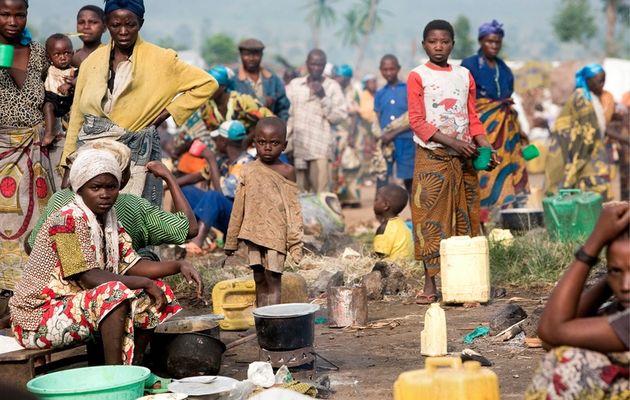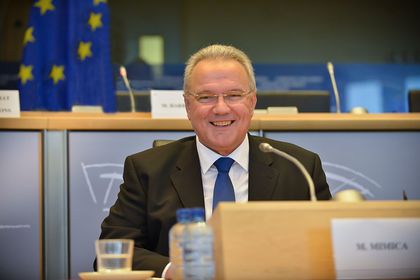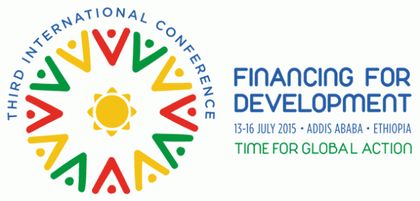Europe comes back to the 0,7% solidarity program
The EU members aim to dedicate 0.7% of their gross national product to international solidarity efforts by 2020.
EurActiv · BRUSSELS · 23 MAY 2015 · 18:00 CET

The European Parliament has called on member states to accomplish their promise of dedicating 0.7% of gross national product to development aid by 2020.
This goal originally starts back in the 1970s, and was reiterated by member states in 2005. Most have so far failed to reach the objective, despite the expiration of the initial deadline this year.
Official development assistance from Union countries and institutions averaged just 0.42% of Gross National Income (GNI) in 2014.
Only Sweden, Luxembourg, Denmark and the United Kingdom have already reached the 0.7% objective. The rest, including the EU's biggest economies, Germany and France, are still a long way off.
Neither have the newer members of the EU been able to fulfil their more modest objective. Latvia, the Czech Republic and Poland have agreed to donate 0.33% of their GNI on international aid, "but none of them has yet reached this target," EurActiv France reported.

RESOLUTION ON FINANCING FOR DEVELOPMENT
On May 19th, the members of the European Parliament (MEPs) adopted a resolution that gives member states five more years to meet their official development assistance targets.
Though the resolution is not binding, it provides a firm objective. By 2020, the EU 28 must dedicate 0.7% of their gross national product (GNP) to international solidarity efforts.
The Group of the Progressive Alliance of Socialists & Democrats in the European Parliament’s rapporteur on the resolution, Pedro Silva Pereira, remained MEPs in Strasbourg that "this resolution demands that the Parliament make a choice and it sends a message about the kind of leadership the EU should show.” “The EU must urgently renew its 0.7% objective", he commented.
ADDIS ABABA CONFERENCE
The European Parliament's resolution has come at an opportune moment, with the International Conference on Financing for Development in Addis Ababa this July.
EU member states will have to re-state their development commitments at this meeting. French MEP Louis-Joseph Manscour believed "the Addis Ababa conference must galvanise the will of European countries to help the developing world".
Previously, at their next meeting on 26 May, the Foreign Affairs Council will try to agree on a post-2015 development agenda and a programme of development financing.
French NGO group Coordination SUD said "the meeting of the Foreign Affairs Council dedicated to development will give leaders the chance to commit to reaching the 0.7% target by 2020".

RESOLUTION SCHEDULE
With budgets already strained, many are cutting development assistance. "As far as the timetable for reaching 0.7% is concerned: that is up to the member states”, Neven Mimica, the EU commissioner for international cooperation and development, said. He added that "the economic realities" must be taken into account.
To push the debate forward, the French government will advocate a more easily achievable target: dedicating 0.15% of GNI to the world's poorest countries. A French source said "this is a more feasible objective". France hopes to sidestep binding time limits.
Mimica already emphasized the importance of honouring the commitment on official development assistance (ODA): “The EU should collectively recommit to the target of spending 0.7% of gross national income spent on ODA”, he stated last February, when the European commission published its plans for the post-2015 agenda
“That would actually leverage our negotiating position at the UN when encouraging other developed countries to make the same level of financial commitment”, he explained then.
“It would also engage emerging donors from upper-middle income countries to take their fair share of their commitments on implementing the new development agenda”, he concluded.
Published in: Evangelical Focus - europe - Europe comes back to the 0,7% solidarity program
